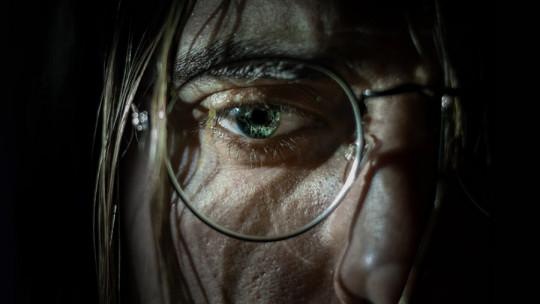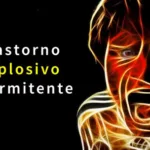An impulse is characterized by being something that all people experience or feel at some point throughout their life and it is about carrying out an action emotionally or, to put it another way, doing something “without thinking.”
Usually, the person is perfectly capable of managing these impulses, letting themselves go to a greater or lesser extent. However, in some people this ability is highly altered, and can trigger a mental disorder known as impulse control disorder.
What is impulse control disorder?
Impulse control disorder is defined, according to the Diagnostic and Statistical Manual of Mental Disorders (DSM-IV), as those disorders in which the person experiences great difficulties or is not able to support or resist the impulse to commit an action that will end up being harmful to the person themselves or to others.
In almost all of these behavioral alterations, the patient experiences a feeling of tension or great activation prior to carrying out the action, followed by an emotion or feeling of pleasure, gratification, or even liberation.
Nevertheless, Sometimes the patient may feel feelings of guilt and self-reproach However, it is not a mandatory condition of impulse control disorder.
The symptoms are usually chronic and often intrusive, interfering in different areas of the patient’s life. Likewise, people affected by an impulse control disorder tend to have a deficit in the ability to control their emotions, which, together with the symptoms of the disorder, can also cause a series of emotional disturbances.
In most cases, the condition begins in childhood or adolescence and symptoms tend to worsen over time.
Classification
Although there are numerous psychological disorders characterized by a deficit in impulse control, Some of the most well-known impulse control disorders are the following: s.
1. Intermittent explosive disorder
In intermittent explosive disorder the person experiences recurring episodes of impulsive behaviors , characterized by being aggressive and virulent in nature. Likewise, they can also engage in outbursts of angry verbal manifestations and disproportionate reactions to any situation.
Some of its symptoms include tantrums, domestic violence, or throwing and breaking any object the patient has on hand.
2. Kleptomania
Despite being one of the most famous disorders within impulse control disorders, Kleptomania is a complex disorder that is defined as the inability to restrain or control the impulse to steal r.
A kleptomaniac person experiences an irresistible impulse to steal, often in order to appease their emotions. Likewise, a little-known peculiarity of kleptomania is that the patient usually feels guilty after committing the theft.
3. Trichotillomania
Trichotillomania is characterized by The person is unable to repress the impulse to pull their hair, leading to pulling it out and causing baldness This alteration is closely associated with trichophagia, in which the person, in addition to pulling out their hair, ingests it compulsively.
4. Pyromania
Another well-known psychiatric disorder is pyromania, in which the patient feels the impulse to start fires, experiencing a pleasant sensation, relief and calm.
5. Gambling addiction
Gambling addiction is also known as compulsive gambling, and in it the person feels an uncontrollable urge or need to engage in or persist in gambling-related behaviors even if this implies a serious deterioration in your life or great economic losses.
6. Dermatillomania
This is a little known condition in which the person feels the compulsive need to scratch themselves rubbing, pinching or scratching the skin.
7. Onychophagia
Characterized by the habit, sometimes compulsive, of biting one’s nails. Onychophagia is possibly the most widespread impulse control disorder and surely the most socially accepted
8. Compulsive shopping
Uncontrollable impulse to buy spontaneously, without any type of premeditation. It is usually known as oniomania.
9. Compulsive hoarder syndrome
In this syndrome, the person tends or has the obsession to collect and store objects in an excessive manner ; regardless of whether these are worthless, or whether they are harmful or detrimental to health.
In these cases, people can live overcrowded in their homes, surrounded by hundreds of objects piled up around the home. Likewise, they can also collect animals, holding a large number of animals, often under unsanitary conditions.
Symptoms of these disorders
Due to the large number and diversity of behavioral alterations that impulse control disorders encompass, There are countless symptoms and signs of these. And these will vary depending on the type of affectation suffered by the person
This symptomatology can be divided into physical, behavioral, cognitive and psychosocial symptoms.
Causes
The origin and evolution of impulse control disorders can be found in different causes, which can be genetic, physical and environmental.
1. Genetic causes
In the same way that other psychiatric disorders are susceptible to originating from genetic causes, Various studies have affirmed the existence of a genetic influence on the onset and development of impulse control disorders
2. Physical causes
Through the use of neuroimaging techniques, it has been confirmed that patients who manifest symptoms of impulse control disorder reveal differences in the brain at a structural level.
This differentiation could interfere with normal brain function including the correct activity of the neurotransmitters responsible for impulse control.
3. Environmental causes
The context or environment in which the person lives is an element capable of exerting a great influence on this becoming an important agent in shaping the behavior of patients.
Treatment
As with the great diversity of symptoms, The treatment for impulse control disorder will depend on the way in which it manifests itself
Likewise, on rare occasions the person ends up requesting professional assistance or help, only in those cases in which the disorder has interfered too much in the patient’s life or in those in which he has broken the law.
Even so, it has been shown that the most effective interventions are those that combine a psychological approach with a pharmacological treatment that reduces the patient’s compulsions.









